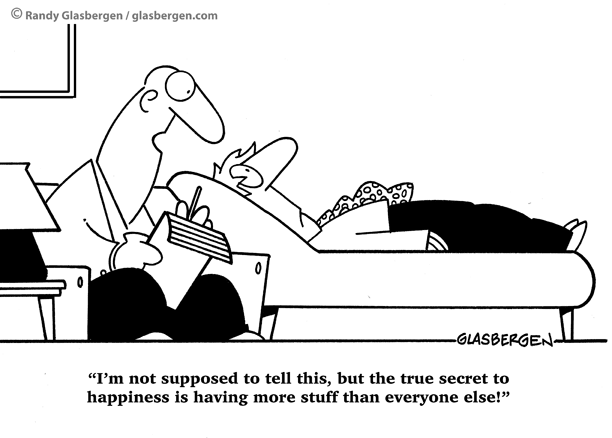Politics is shifting from economic growth to gross happiness. But what policies do our politicians need to pursue to help us become happier creatures?
Capabilities and Allocations are linked to aspirations and entitlements. These are indicators related to wealth rather than happiness. Letting go of the notion that happiness is linked to wealth is challenging. "The relationship between money and happiness is very tenuous; the relationship between personal bonds and happiness is incredibly strong," says David Brooks "So joining a club that meets once a month produces the same happiness gain as doubling your income. It's all about the number of people you associate with and how intimately you associate with them." We probably insist on this false connection between wealth and happiness because our political economy is built on it and our media use every opportunity to repeat this mantra.
To help us choose the best approach, let us call on the happiest man in the world: Matthieu Ricard's definition of happiness is: “well-being, a deep sense of serenity and fulfillment, a state that pervades and underlies all emotional states and all the joys and sorrows that come one’s way.” This leaves no doubt that only the approach of "subjective well-being" can guide our policy decisions. Ricard also says: "You cannot, in the same moment of thought, wish to do something good to someone or to harm that person. Those are mutually incompatible like hot and cold water."
So when we want to have a good indication of whether a person is happy we should ask the following two questions: Do you have good thoughts and feelings? Do you have bad thoughts and feelings?
How does this help us understand what policies our governments should push for? Let's look at the solution below.
The Solution:
If happiness is a subjective, we can only reach it through trial and error. But we do not need to start from scratch. We can look at those countries that are doing well and try to copy what they do.
Now here the questions to ask matter because Gallup is asking all kinds of well-being questions and depending on the question different exemplary countries will emerge. Unfortunately, figures for Bhutan, the only country in the world pursuing gross national happiness, are not available.
Using a mixture of wealth, aspiration and entitlement, the following countries come out on top: (The exact order will depend on how the Gallup questions and indicators are combined but the same group of countries is regularly in the top ten.)
Denmark
But when we move away from the wealth and aspiration indicators and focus on subjective well-being only, the leading countries change. One of Gallup's indicators, the positive experience index, combines some interesting subjective happiness questions:
- Did you feel well-rested yesterday?
- Were you treated with respect all day yesterday?
- Did you smile or laugh a lot yesterday?
- Did you learn or do something interesting yesterday?
- Did you experience enjoyment?
The richest countries have disappeared from the top of the list! (Iceland and Canada are the exceptions) The richest countries have similar scores to China and many countries in Africa. Have these richest countries lost a quality of life that contributes considerably to our subjective well-being? What is the common factor between these countries that score so well on the subjective well-being?

Thai Smiles
Following Matthieu Ricard, we should combine this list with the lowest level of negative experiences. Gallup has that index as well. The questions are:
- Did you experience physical pain?
- Did you experience worry?
- Did you experience sadness?
- Did you experience stress?
- Did you experience depression?
- Did you experience anger?
The countries that end up on top are:
Kosovo 15
Venezuela 15
Again, the richest countries are absent. They suffer from negative experiences. Does wealth come with unnecessary worry? Some countries were negative experiences are rare have gone through traumatic experiences in their recent past. Are the richest nations suffering the small stuff because they are taking security and basic needs for granted?
Thailand and Venezuela are in both lists. What is the secret to having many positive and few negative experiences? Is it cause by circumstances or is it innate in the people?
While the above are interesting questions that need to be answered, the big pink elephant in the middle of the room is: why is nobody looking at this? And if someone is out there looking into it, why is nobody reporting on it? One can only conclude that our systems (media, political and economic) are biased towards maintaining economic growth as the purpose of our governance model.
The Transition:
We will never be able to transition from the pursuit of economic growth to the pursuit of happiness until we change our political system. As long as our economic elite controls the political system, there is no room for change. Therefore, it is urgent to abolish elections, the parliament, the government, and the administration.






